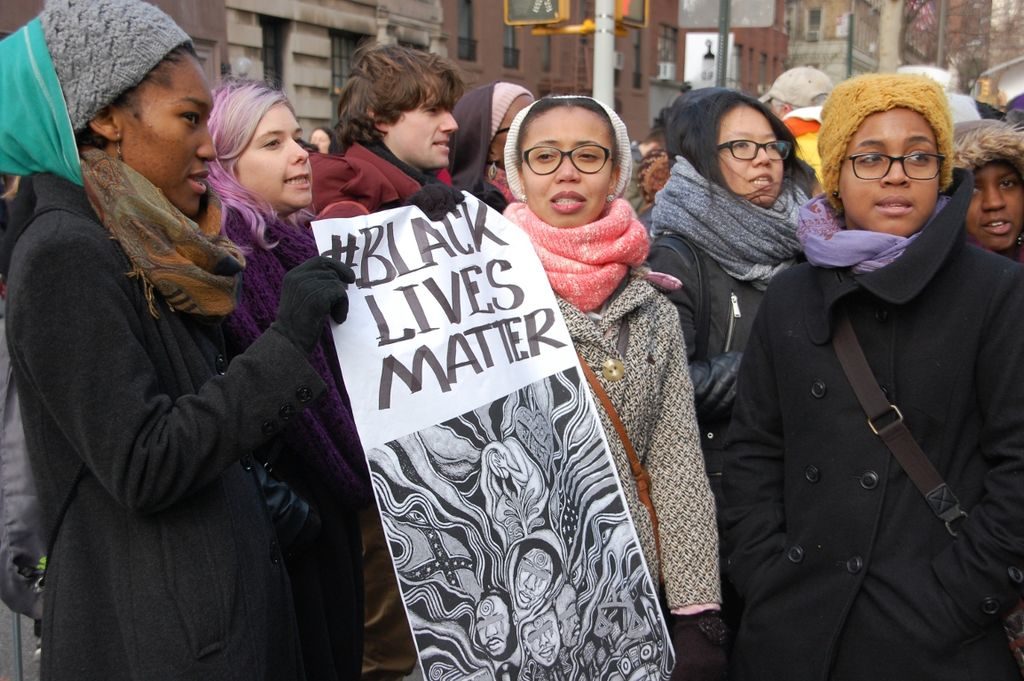The American Psychologist journal published a new special issue that features the latest psychological research on racial trauma. Feminist psychologist and clinical practitioner, Dr. Lillian Comas-Díaz and her colleagues, introduced the special issue and its mission to foreground novel conceptual models of racial trauma, promote healing on individual and collective levels, and highlight consideration of historical racial injuries.
“We hope that this special issue helps to shed light on the insidious presence of racial trauma, to motivate more research on the topic, to highlight the importance of culturally appropriate treatments, and to address the urgent need for public policy interventions,” Comas-Díaz writes. “Moreover, we hope that this collection encourages more psychologists to conduct theoretically and methodologically sophisticated research in the area of racial trauma.”

The special issue provides a contemporary examination of race-based stress, or racial trauma, a term that “refers to the events of danger related to the real or perceived experience of racial discrimination. These include threats of harm and injury, humiliating and shaming events, and witnessing harm to other POCI [People of Color and Indigenous Individuals)] due to real or perceived racism.”
This work builds upon documentation and evidence detailing that the prevalence of racial discrimination results in ongoing health disparities. Individuals with multiple, intersecting marginalized identities and African Americans face greater exposure to racial trauma than other ethno-racial groups. However, indigenous communities and communities of color are all seen to suffer race-based discrimination and trauma.
Although trauma is typically attached to the Western conceptualization of Posttraumatic Stress Disorder (PTSD), this special issue makes the distinction between PTSD and racial trauma. Both are said to feature psychological and physical effects such as “hypervigilance to threat, flashbacks, nightmares, avoidance, suspiciousness, and somatic expressions such as headaches and heart palpitations.” However, racial trauma includes a form of ongoing exposure and re-exposure to race-based stress in addition to the intergenerational effects, highlighted in epigenetics research, that have resulted from colonization, genocide, slavery, dislocation, and other related historical racial injuries.
The special issue is organized into four different sections: (1) New Conceptual Models of Racial, Ethnic, and Indigenous Trauma and Healing; (2) Empirical Research on Racial, Ethnic, and Indigenous Trauma; (3) Conceptualizing and Challenging Microaggressions and Racial Ideologies; and (4) An Enduring Message from Dr. Martin Luther King.
New Conceptual Models of Racial, Ethnic, and Indigenous Trauma and Healing
In the first section, the featured conceptual models take an anticolonial lens to examine American Indian historical trauma (Hartmann, Wendt, Burrage, Pomerville, and Gone, 2019) and incorporate an intergenerational trauma perspective. Nagata, Kim, and Wu (2019) apply this concept to the internment of Japanese Americans in World War II, noting the coping mechanisms that developed in response to this oppression: silence and assimilation to mainstream society.
A socio-historical analysis sets a framework for Chavez-Dueñas, Adames, Perez-Chavez, and Salas (2019) to apply intersectional theory and liberation psychology to conceptual models that discuss the oppressive immigration policies, practices, and laws affecting the lives of Latinx individuals. They introduced the Healing Ethno-Racial Trauma (HEART) (see MIA Report here) to address the impacts of, “interlocking systems of oppression, such as racism, ethnocentrism, nativism, and sexism.”
Another conceptual model, the racial encounter coping appraisal and socialization theory (RECAST) was developed to attend to the racial socialization process for African Americans (Anderson & Stevenson, 2019). Finally, Comas-Díaz acknowledges the understudied community of people of Middle Eastern and North African (MENA) descent. She notes that Awad, Kia-Keating, and Amer (2019), featured in this special issue, developed a model that conceptualizes the “cumulative racial ethnic trauma representing the uniqueness of the MENA American populations.”
Empirical Research on Racial, Ethnic, and Indigenous Trauma
The third section of the issues is composed of three articles that cover the association between trauma and psychological adjustment. Skewes and Blume (2019) wrote about the link between substance use among American Indians in the context of the arrival of Europeans to North America. “The researchers concluded that increases in social, economic, and health equity are needed at a societal level to break the cycle of racial trauma and revictimization,” writes Comas-Díaz.”
The second article, published by Sibrava and a team of researchers, explored the relationship between experiences of discrimination and PTSD in African American and Latinx adult populations. Comas-Díaz connects Sibrava et al.’s work to the third article, writing:
“There is clear empirical evidence supporting the association between greater experiences with racial discrimination and depression among POCI. Seaton and Iida (2019) added complexity to this association when they explored the moderating role of racial identity attitudes on this relationship among African American youth.”
Conceptualizing and Challenging Microaggressions and Racial Ideologies
The special issue’s third section features an in-depth examination of microaggressions, which are experiences recognized as forms of racial trauma. D.W. Sue and colleagues present specific ways to intervene and address microaggressions, which they call “micro-interventions.” These microinterventions center around “mobilizing targets, allies, and bystanders to confront and educate perpetrators” through the following tactics:
- Making the invisible visible
- Disarming the microaggression
- Educating the perpetrator
- Seeking external reinforcement and support
The second article in this section expands on the concept and research of microaggressions extending and applying their meaning to racial identity and acculturation processes. Liu and colleagues (2019) describe the ways in which people of color and indigenous individuals (POCI) engage in processes to make themselves “racially innocuous to avoid further racial trauma.”
“In doing so,” Comas-Díaz summarizes, “POCI anticipate the emotional responses and needs of White individuals in interracial contexts and behave in ways to maintain psychological health and guard against acculturating to White supremacy.”
An Enduring Message from Dr. Martin Luther King
The special issue ends with the recognition of Dr. Martin Luther King and his message that reverberates within this special issue published 50 years later. Comas-Díaz concludes: “The set of articles within this special issue expand conceptual and empirical research on racism within a more racially diverse society than was the one of Dr. King’s address.”
The intention of this special issue, she writes, is to highlight the ongoing presence of racial trauma, to call for more researchers to engage in addressing these topics, and to stress the importance of devising culturally appropriate interventions. Further, Comas-Díaz emphasizes the resiliency and thriving of POCI amid the impact of historical and ongoing traumatic injury:
“Finally, this special issue underscores that despite racial trauma’s deleterious effects, people can persist and thrive.”
****
Comas-Díaz, L., Hall, G. N., & Neville, H. A. (2019). Racial trauma: Theory, research, and healing: Introduction to the special issue. American Psychologist, 74(1), 1-5. (Link)















Thanks for this. One view and still so many more to have highlighted.
There really should be a White House Conference on Trauma along with Congressional Hearings and possibly a new department that would work on an interdepartmental level providing education to all the powers and others that be. Perhaps a type of “ white” or maybe “ rainbow” paper that would cut to the basics so that the information would be easily accessible to all.
And also s long as we are still the subject of the month club maybe a trauma month.
Report comment
That old psychological theology that all distress, which is caused by trauma and/or bullying, is a “delusion” created by a “chemical imbalance” in people brains, that results in “lifelong, incurable, genetic mental illnesses,” and a lifetime of iatrogenic hell created with the psych drugs, isn’t working for the psychologists any more? Or are you just saying you need a new theology, so you can pretend your industry is respectable, and then gaslight a bunch of migrants?
The primary job, both historically and today, of both the psychologists and psychiatrists has always been covering up child abuse and rape.
https://www.indybay.org/newsitems/2019/01/23/18820633.php?fbclid=IwAR2-cgZPcEvbz7yFqMuUwneIuaqGleGiOzackY4N2sPeVXolwmEga5iKxdo
https://www.madinamerica.com/2016/04/heal-for-life/
“Helping” trauma survivors is the opposite of what both the psychological and psychiatric “professionals” have been doing for over a century, even according to your own medical literature.
Report comment
Racism cannot be “healed,” it must be defeated.
Report comment